The Turkish attacks that didn't make such big headlines
- Published
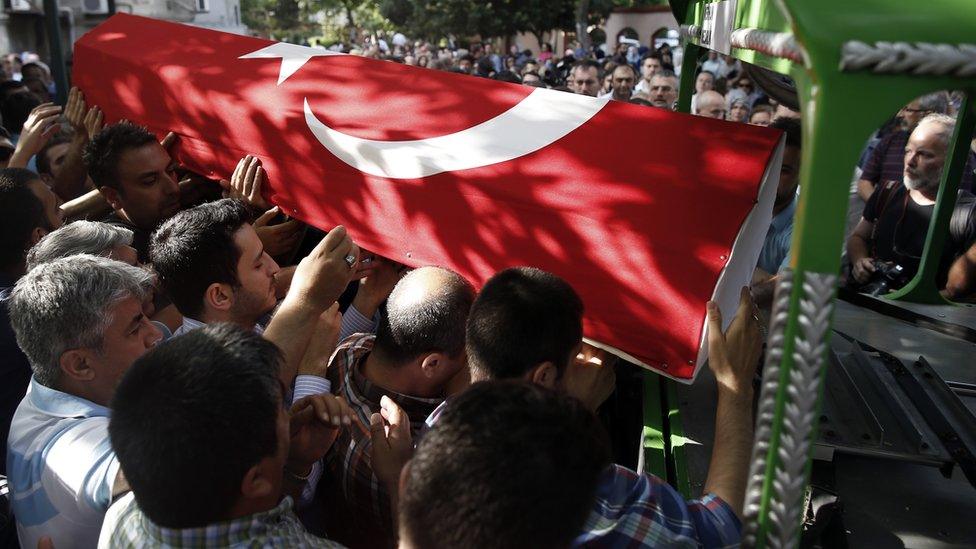
More than 40 people have been killed in an attack on Istanbul's Ataturk's airport, with about 140 more injured.
Officials think Islamic State extremists were behind the attack, as gunmen opened fire at the international terminal, before blowing themselves up.
But this is just the latest in a string of terror attacks in Turkey.
In less than a year 229 people have died in eight attacks you may not even have heard about.
The country's facing a big security threat from different directions - IS on the one side and Kurdish extremist groups on the other.
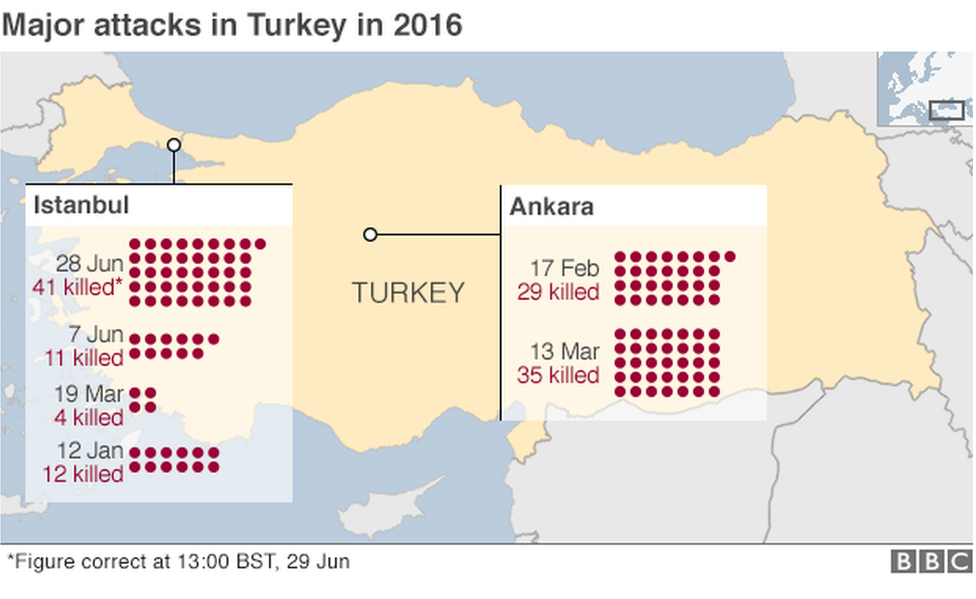
7 June 2016
Only this month, seven police officers and four civilians were killed in a car bomb targeting a bus in Istanbul. 36 people were injured.
It happened near the city's historic Beyazit Square neighbourhood, a major tourist attraction, and an Istanbul university building.
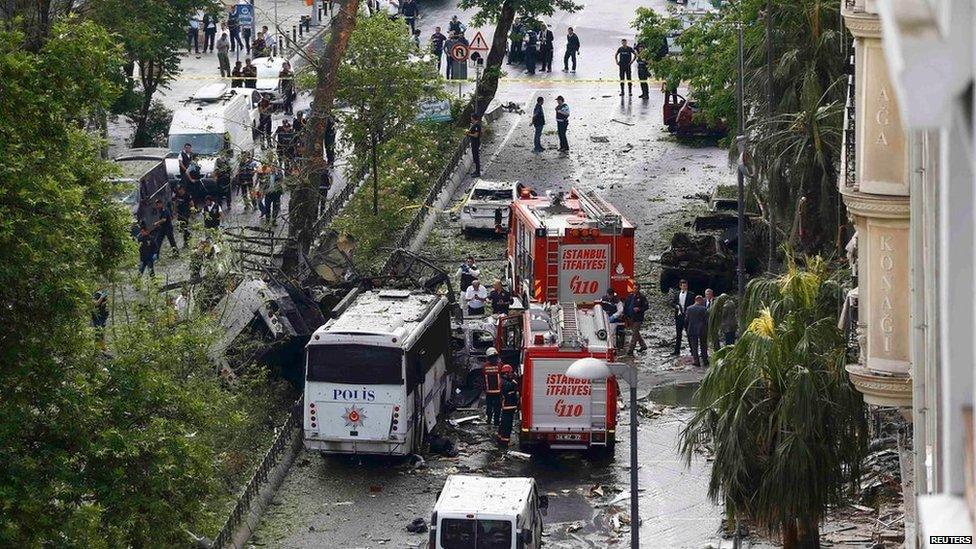
The blast happened during the morning rush hour in central Istanbul
The explosives were detonated remotely as the bus passed through in the morning rush hour.
Militant group TAK (also known as the Kurdistan Freedom Falcons or Hawks) said it was behind the attack.
They want an independent state in eastern and south-eastern Turkey for people of Kurdish ethnicity.
19 March 2016
Four people were killed in a suicide bomb in a busy shopping street, with 36 injured in the blast near a government building in Istanbul. IS was blamed.
"It was very chaotic. Everyone was screaming and running away," one witness told the BBC.
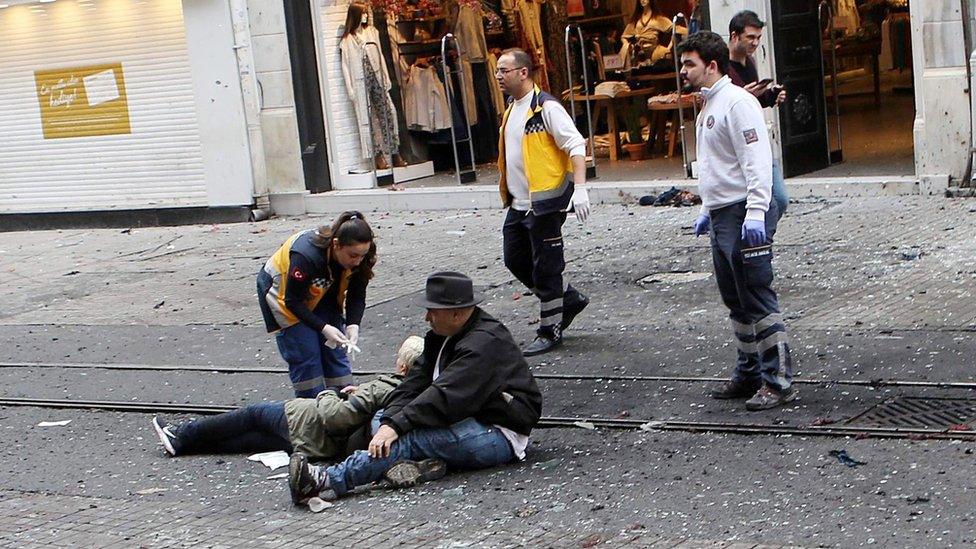
Medics rushed to try to help a wounded man
"Istanbul is on high alert and people are very worried as to what will happen next," he said.
13 March 2016
A car bomb killed 35 people in the Turkish capital Ankara. TAK said it was behind the attack.
The group said it was in revenge for military operations against militants in the mainly Kurdish south-east.
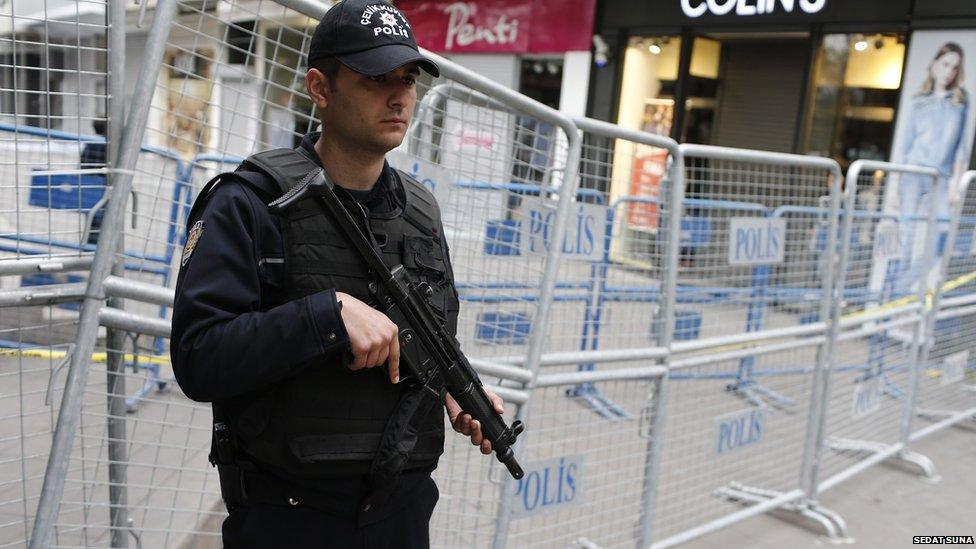
A ceasefire between the two sides collapsed last July. Since then hundreds have been killed and predominantly Kurdish cities are under repeated curfews.
The bombing happened in a busy commercial district and transport hub.
Dozens of people were wounded, with TAK warning more civilian casualties were inevitable in further attacks.
17 February 2016
Another 29 killed in an attack on military buses in Ankara. Again it was claimed by TAK.
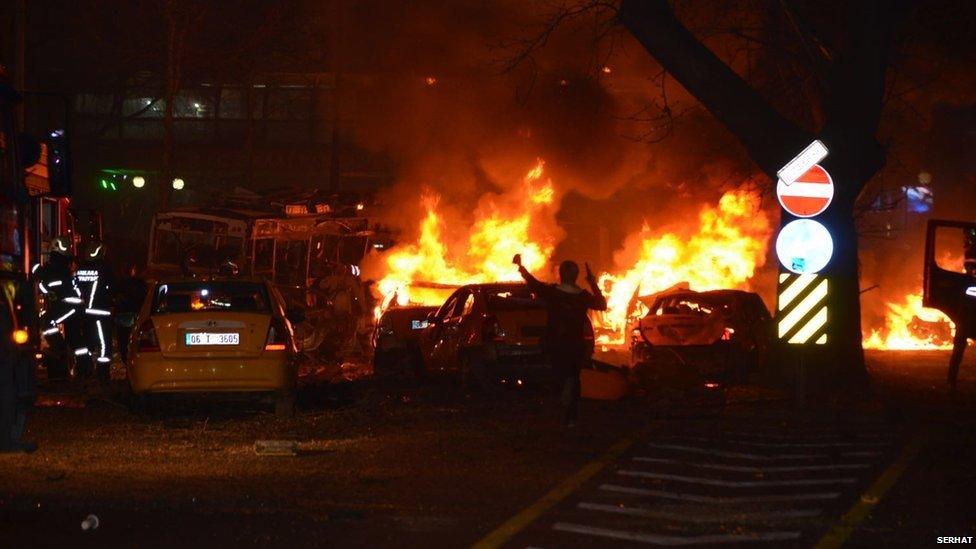
A passer-by took this image shortly after the blast
Turkey's president said terror groups were targeting civilians because they were losing their struggle against Turkish security forces.
Recep Tayyip Erdogan added that such attacks "increase our determination to fight terrorism".
12 January 2016
Twelve Germans were killed by a Syrian bomber near the famous Blue Mosque in the tourist area of Sultanahmet district.
It's thought he may have been part of IS. Around 15 people were also wounded, many of them German tourists.
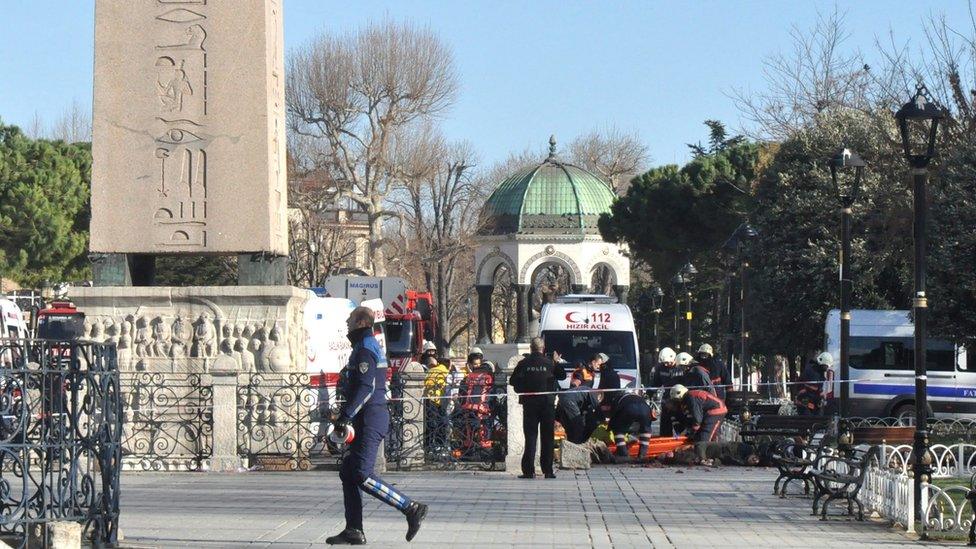
Turkey's PM vowed to find and punish those linked to the bomber
President Recep Tayyip Erdogan said Turkey was the "top target for all terrorist groups in the region".
Last year Turkey agreed to take a more active role in the US-led campaign against IS, carrying out air strikes in Syria.
23 December 2015
A bomb killed a cleaner at Istanbul's smaller Sabiha Gokcen airport. Again TAK said it was responsible.
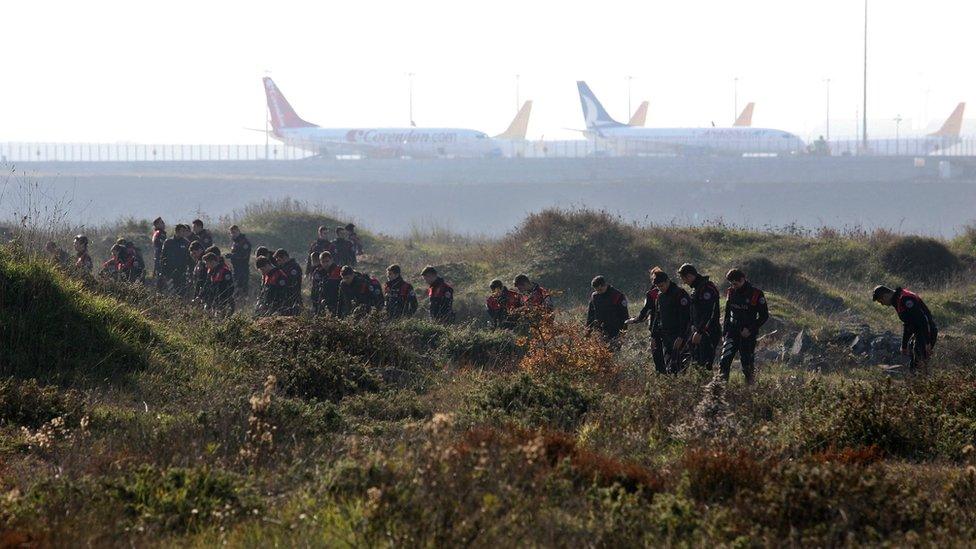
Investigators combed through nearby fields the following morning
The woman who died was working on a Pegasus airlines plane overnight when the blast took place. A colleague who was with her was wounded.
10 October 2015
IS was blamed for the deadliest attack of its kind on Turkish soil. Around 245 were injured.
More than 100 were killed after two explosions at peace rally outside a railway station in Ankara.
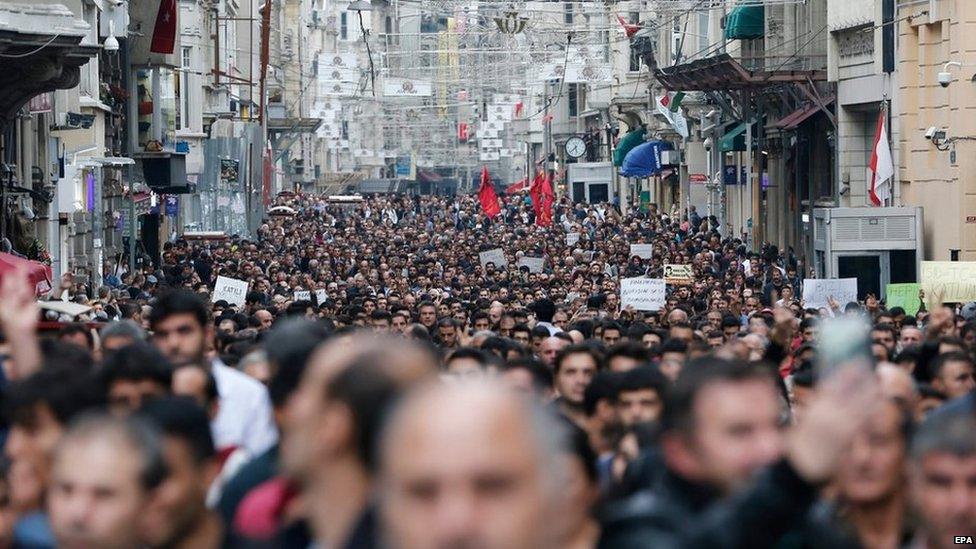
Protesters gathered in Turkey's largest city, Istanbul, to condemn the attacks
Protesters had been demanding an end to the violence between Kurdish separatist militants the PKK and the Turkish government,
The country held three days of national mourning.
20 July 2015
Thirty-four people killed in a bombing in a Kurdish town of Suruc, near the Syrian border. IS was blamed.
It happened during a meeting of young activists discussing the reconstruction of the neighbouring Syrian town of Kobane.
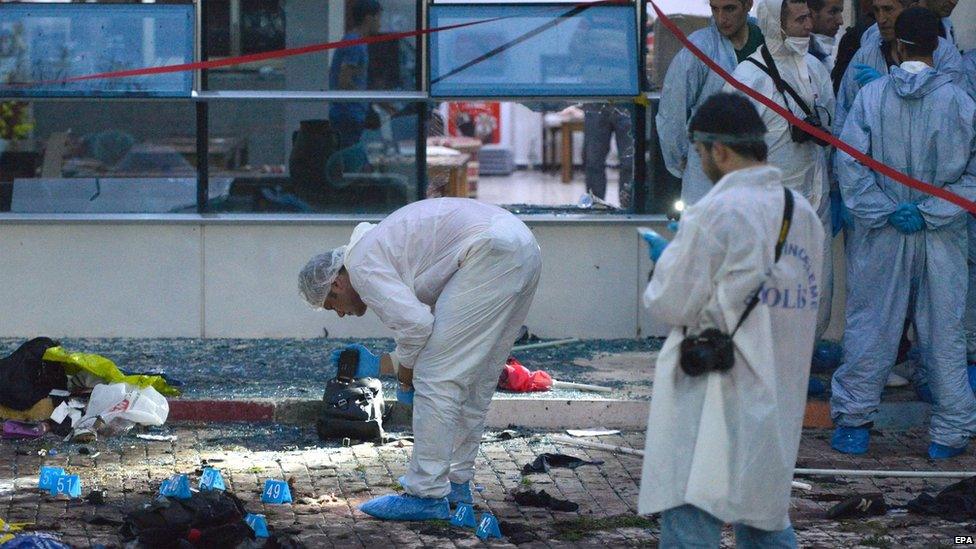
Kobane has seen heavy fighting between IS militants and Kurdish fighters. It was retaken by the Kurds from IS forces last year.
Advice on travelling to Turkey
More than two and a half million Brits visit Turkey every year.
The UK's Foreign offices calls the threat from terrorism there high but says it is generally safe to travel.
But it advises tourists to be alert and vigilant in crowded places popular with tourists.
It recommends all but essential travel to areas within 10km of the Syrian border and many where Kurdish fighters are active.
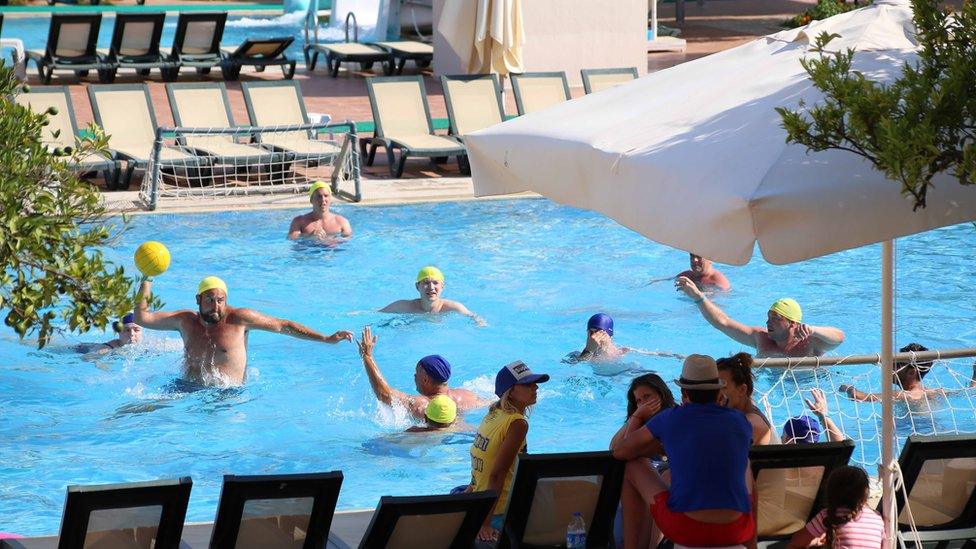
Tourists are being offered cheap deals for holidays in Turkey
More than two and a half million Brits visit Turkey every year.
The Foreign Office calls the threat from terrorism there high but says it is generally safe to travel.
But it advises tourists to be alert and vigilant in crowded places popular with tourists.
It recommends all but essential travel to areas within 10km of the Syrian border where Kurdish fighters are active.
Find us on Instagram at BBCNewsbeat, external and follow us on Snapchat, search for bbc_newsbeat